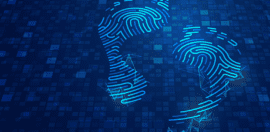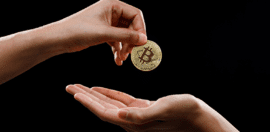Threats to Internet Freedom - Watchdog Report

25 September 2012 at 3:22 pm
A new report from a US watchdog organisation suggests some Governments are growing increasingly repressive online, while activists are fighting back.
Brutal attacks against bloggers, politically motivated surveillance, proactive manipulation of web content, and restrictive laws regulating speech online are among the diverse threats to internet freedom emerging over the past two years, according to a new study released today by Freedom House.
Despite these threats, Freedom on the Net 2012: A Global Assessment of Internet and Digital Media found that increased pushback by civil society, technology companies, and independent courts resulted in several notable victories.
“The findings clearly show that threats to internet freedom are becoming more diverse. As authoritarian rulers see that blocked websites and high-profile arrests draw local and international condemnation, they are turning to murkier—but no less dangerous—methods for controlling online conversations,” Sanja Kelly, project director for Freedom on the Net at Freedom House said.
“The battle over internet freedom comes at a time when nearly one third of the world’s population has used the internet. Governments are responding to the increased influence of the new medium by seeking to control online activity, restricting the free flow of information, and otherwise infringing on the rights of users.
“The methods of control are becoming more sophisticated, and tactics previously evident in only the most repressive environments—such as governments instigating deliberate connection disruptions or hiring armies of paid commentators to manipulate online discussions—are appearing in a wider set of countries,” Kelly said.
Freedom on the Net 2012, which identifies key trends in internet freedom in 47 countries, evaluates each country based on barriers to access, limits on content, and violations of user rights.
The study found that Estonia had the greatest degree of internet freedom among the countries examined, while the United States ranked second. Iran, Cuba, and China received the lowest scores in the analysis. Eleven other countries received a ranking of Not Free, including Belarus, Saudi Arabia, Uzbekistan, and Thailand. A total of 20 of the 47 countries examined experienced a negative trajectory in internet freedom since January 2011, with Bahrain, Pakistan, and Ethiopia registering the greatest declines.
Several downgrades, particularly in the Middle East, reflected intensified censorship, arrests, and violence against bloggers as the authorities sought to quell public calls for reform. In Saudi Arabia, Ethiopia, Uzbekistan, and China, authorities imposed new restrictions after observing the key role that social media played in the uprisings in Egypt and Tunisia.
At the same time, 14 countries registered a positive trajectory, with Tunisia and Burma experiencing the largest improvements following dramatic political openings.
The report says the remaining gains occurred almost exclusively in democracies, highlighting the crucial importance of broader institutions of democratic governance in upholding internet freedom.
As part of its analysis, Freedom House identified a number of important countries that are seen as particularly vulnerable to deterioration in the coming 12 months: Azerbaijan, Libya, Malaysia, Pakistan, Russia, Rwanda, and Sri Lanka.
Key Trends from the report include:
- New laws restrict free speech: In 19 of the 47 countries examined, new laws or directives have been passed since January 2011 that either restrict online speech, violate user privacy, or punish individuals who post content deemed objectionable or undesirable.
- Bloggers and ordinary users increasingly face arrest for political speech on the web: In 26 of the 47 countries, including several democratic states, at least one blogger or ICT user was arrested for content posted online or sent via text message.
- Physical attacks against government critics are intensifying: In 19 of the 47 countries assessed, a blogger or internet user was tortured, disappeared, beaten, or brutally assaulted as a result of their online posts. In five countries, an activist or citizen journalist was killed in retribution for posting information that exposed human rights abuses.
- Paid commentators, hijacking attacks are proliferating: The phenomenon of paid pro-government commentators has spread over the past two years from a small set of countries to 14 of the 47 countries examined. Meanwhile, government critics faced politically motivated cyberattacks in 19 of the countries covered.
- Surveillance is increasing, with few checks on abuse: In 12 of the 47 countries examined, a new law or directive disproportionately enhanced surveillance or restricted user anonymity. In authoritarian countries, surveillance often targets government critics, while in middle-performing countries, safeguards for user rights and oversight procedures are lagging far behind governments’ technical capacities and legal powers, leading to abuse.
- Citizen pushback is yielding results: A significant uptick in civic activism related to internet freedom, alongside important court decisions, has produced notable victories in a wide set of countries. Advocacy campaigns, mass demonstrations, website blackouts, and constitutional court decisions have resulted in censorship plans being shelved, harmful legislation being overturned, and jailed activists being released. In 23 of the 47 countries assessed, at least one such victory occurred.
US-based Freedom House is an independent watchdog organization that supports democratic change, monitors the status of freedom around the world, and advocates for democracy and human rights.







